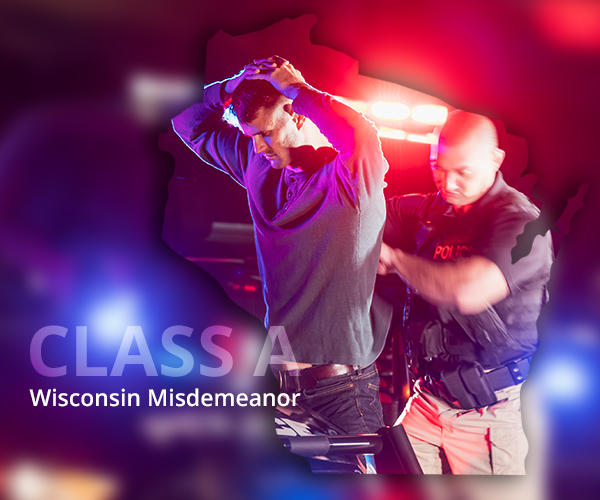A Class A misdemeanor in Wisconsin is the most serious non-felony offense, carrying penalties of up to 9 months in jail and fines of up to $10,000 (Wis. Stat. § 939.51). While misdemeanors are less severe than felonies, a Class A misdemeanor conviction can have lasting consequences, including damage to your reputation, job loss, and restrictions on future opportunities. Grieve Law is ready to help you fight these charges and protect your future.
What Is a Class A Misdemeanor in Wisconsin?
A Class A misdemeanor is the most severe misdemeanor classification under Wisconsin law. It carries a maximum sentence of 9 months in jail, a $10,000 fine, or both. While not a felony, a conviction stays on your record indefinitely unless expunged. Having a criminal record can affect your employment, housing opportunities, and your ability to obtain professional licenses.
Although misdemeanors are often perceived as minor offenses, Class A misdemeanor charges should not be taken lightly. The best way to avoid serious consequences is to work with an experienced criminal defense attorney who understands how to challenge the prosecution’s case.
Types of Class A Misdemeanors
Class A misdemeanors include a variety of offenses, ranging from property crimes to acts of violence. Grieve Law has defended clients against charges including:
- Theft of property worth less than $2,500
- Vandalism or destruction of property under $2,500
- Resisting or obstructing a police officer
- Various forms of animal mistreatment
- Hazing
- Prostitution or solicitation
- Misdemeanor battery (causing bodily harm)
- Hit and run involving minor injuries
- Indecent exposure
- Harassment involving threats of bodily harm
- Destroying or defacing the U.S. flag with intent to incite violence
- Operating an illegal gambling establishment
- Possession of gambling devices
- Criminal trespassing (homes, construction sites, or locked buildings)
- Misdemeanor bail jumping
A Class A misdemeanor conviction can disrupt your life and lead to jail time, financial penalties, and a permanent criminal record. Prosecutors often seek maximum punishment, but Grieve Law knows how to challenge the evidence, expose weaknesses, and work toward reducing or dismissing charges. If you’ve been accused of a Class A misdemeanor in Wisconsin, you are only guilty if you are convicted™. Call Grieve Law today for a free consultation.

Defenses for a Class A Misdemeanor
A Class A misdemeanor charge does not automatically lead to a conviction. From the initial court appearance through trial, Grieve Law builds strong legal defenses to protect your rights and challenge the prosecution’s case. Our defense strategies include:
- Unlawful Search or Arrest: If police violated your Fourth Amendment rights through an illegal search or improper arrest procedures, evidence could be thrown out.
- Motion Hearings: Filing pre-trial motions to suppress evidence or dismiss charges can prevent the prosecution from using illegally obtained evidence.
- Insufficient Evidence: The burden of proof rests with the state. If prosecutors lack sufficient evidence to prove your guilt, the case may be dismissed.
- Negotiating Charge Reductions: Many Class A misdemeanors can be reduced to Class B or C misdemeanors, minimizing penalties and keeping convictions off your record.
Grieve Law examines every detail of your case to ensure no legal violation goes unchecked while working toward the best possible outcome.
References: Classification of Misdemeanors: Wisconsin Statute § 939.51 (2025)


 Keeping Wisconsin Residents Free
Keeping Wisconsin Residents Free